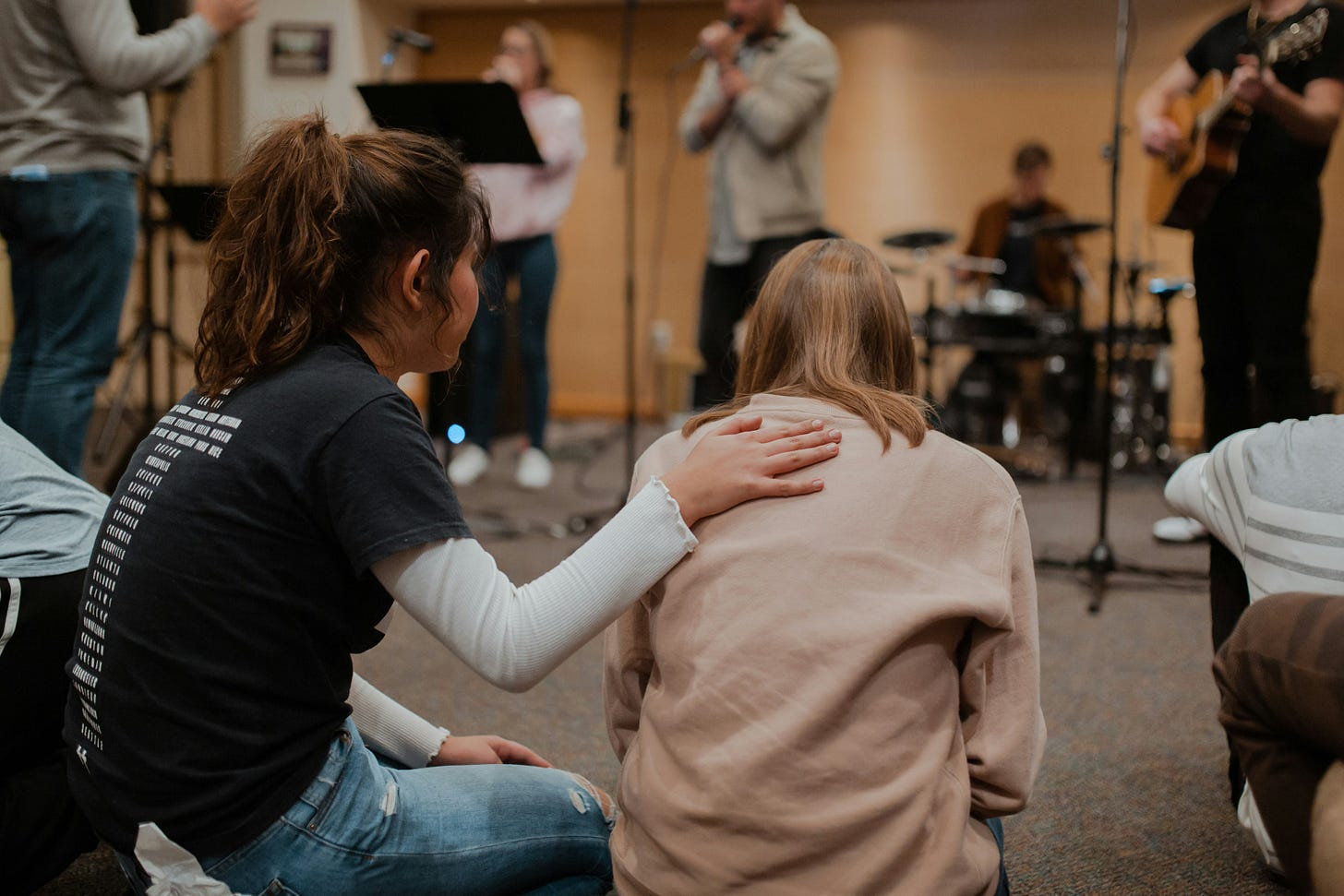The Essential Ingredient for Catholic Youth Ministry That Works
It's not about the perfect programme.
“How many young people who leave our youth groups at the end of high school are still practicing their faith five years later?”
Recently, I was discussing this question with a fellow youth minister.
“You should check out this book by this guy, Everett Fritz,” she replied. “He thinks youth groups are bad.”
“Youth groups are bad?!” I exclaimed. What kind of ridiculous hot take was this? Youth groups are the staple of Catholic youth ministry. “A big part of the reason why I’m Catholic today is because I was part of a great youth group growing up. How could youth groups be bad?”
“Just read the book,” she said.
So, I did.
“The book” is The Art of Forming Young Disciples, by Everett Fritz. After following my friend’s advice, I can tell you that Everett doesn’t actually think youth groups are bad.
What he does believe is that youth groups are an inefficient format for the essential ingredient of Catholic youth ministry that works: accompaniment.
What is Accompaniment?
Speaking to the bishops of Brazil at World Youth Day 2013, Pope Francis told them: “[W]e need a church capable of walking at people's side… a church that accompanies them on their journey.”
Accompaniment means walking beside someone on their faith journey, providing them with the spiritual (and, if necessary, emotional or physical) support they need to keep moving forward.
The best example of accompaniment is what Jesus did with his disciples. When Jesus invited the disciples to follow him, he didn’t attempt to cover everything in a single sermon or a 12-week programme. He walked with the disciples over several years, patiently leading them deeper in their understanding of what it meant to follow him.
Accompaniment isn’t about a particular program or resource, it’s about relationship. Just as Jesus formed relationships of trust and friendship with his disciples, we are called to do the same.
What Matters Most
The problem with most youth groups is that the programme gets in the way of building these relationships. During the week, a lot of the youth minister’s capacity will be taken up by preparing this programme, which can include food, games, praise and worship, a 10-minute talk, a prayer experience and small groups.
On the night of youth group, most of the youth minister’s time is spent running this programme. Time spent investing in relationships with young people is often limited to a few minutes of small group time near the end.
I could understand this problem, but I remained sceptical of Everett’s arguments. A key part of why I’m a practicing Catholic today was the time I spent as part of a great youth group. I felt like a living, breathing rebuttal of Fritz’s theory.
Then I read the following passage, “…successful youth ministry has little to do with the programs presented to teens and everything to do with the relationships that teens have with the people mentoring them.”
Smack.
You know when read something that requires you to put the book down for a second and re-evaluate your entire life up until that point? That was this passage for me.
It’s All About Relationship
If I’m being honest, I don’t remember a single programme we went through at youth group. I don’t remember any of the talks my youth ministers gave and I’ve got only a vague recollection of some of the topics covered.
What I do remember is that once a week, one of my youth ministers would drive to our secondary school during our lunch break to answer absolutely any questions we had about the Catholic faith.
I remember that same youth minister would regularly take me and a bunch of friends out for coffee after Sunday mass.
I remember breaking up my girlfriend and driving straight to the church, where my youth minister listened to me pour my heart out for the next two hours.
In short, I remember the relationships. What I loved about our youth group wasn’t the weekly programme. It was the relationships I formed with my youth ministers and peers.
Shifting Our Focus
We need to take a good, hard look at our youth ministries and ask the question: Can we identify deliberate, cultivated relationships of accompaniment?
Because if we can’t, we’ve got a problem. If we’ve got a programme that covers important Catholic teaching, but that doesn’t leave room for getting to know the young people who attend, we’ve got a problem.
If we’ve a bunch of youth leaders who are great at running games, but not great at mentoring teenagers, we’ve got a problem.
If we’ve got a youth ministry that gets good numbers every week, but doesn’t create a space for young people go deeper with a mentor and small group of friends, we’ve got a problem.
The solution doesn’t need to be complicated. It wasn’t for Jesus. But to follow His example, we need to make accompaniment the central focus of our ministries.




